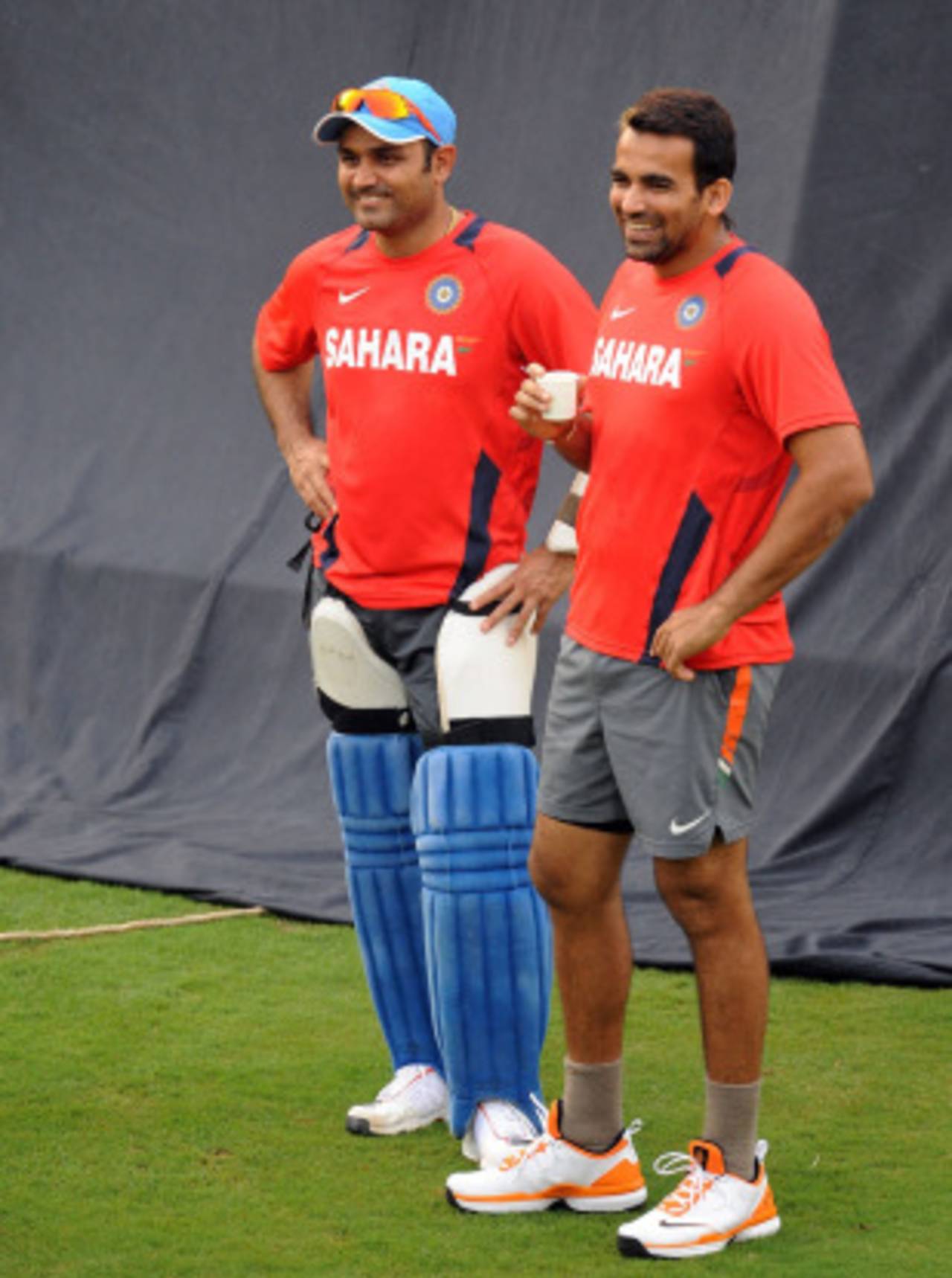India need to sweat the small stuff
To start with, make fitness non-negotiable
Harsha Bhogle
26-Aug-2011

If Sehwag and Zaheer were English, they wouldn't have made it to their team for this series • AFP
India needs an enquiry into the defeat, not an inquisition, and it is not a difficult enquiry to conduct. Many journalists and former cricketers have done it already, and while some are admittedly more thoughtful than others, certain truths have emerged.
However, the basis of a successful enquiry is intent and subsequent action; and Indian cricket has traditionally been good at neither. Action assumes accountability, and that is a dreadful word for many.
I have often said that you become what you choose to become. Should there be a BCCI enquiry, it must begin with a fundamental question: what do we seek to be? If the idea is to be a profitable entity, the BCCI already is. If, however, the idea is to be the best cricket team in the world, then you must have the people and the structure that can take you there. Otherwise India will flirt with No. 1 but never own that position.
Traditionally Indian cricket has placed skill on a pedestal and attitude by the wayside. That seems to me to be the subcontinental way of doing things - even Bangladesh exhibit it. And so our part of the world tends to throw up people who can do some brilliant things but don't care too much about doing the smaller, more routine things. We are a batting country, then maybe a bowling country, and hardly, if ever, a fielding or fitness-driven one. You see, the newspapers and television channels don't report on fielding and fitness, and in any case those two aren't switches that can be flicked on for results. Attitude then becomes an individual pursuit not an institutional trait. A Dravid or a Tendulkar or a Kumble are products of individual values, and so they are willing to do the small things that allow them to become great.
In England, the team who did the small things better won. When you spend time on the small things, you are actually practising excellence. At key moments in the series India were a bowler or a batsman short, not because a truck had knocked them over but because they weren't fit. And it didn't matter to those selecting them that the players weren't fit. Both at Lord's and in Nottingham, India had the opportunity to win but didn't have a bowler when it mattered. Zaheer Khan shouldn't have been on the tour; his shape was a testament to that. Neither should Virender Sehwag or RP Singh have been on it.
The new England make some things non-negotiable, as the old Australia and the old West Indies did. Fitness is one of those. As an Indian player told me, fitness isn't about being able to get onto the park but about coming back after tea to bowl a solid six-over spell. To do that you must be strong and in rhythm, and to be strong and in rhythm you have to have trained and played.
In days gone by, English cricket sent players burdened by county workload to play Test matches. Predictably they didn't last, they weren't strong enough. But when Stuart Broad was bowling poorly against Sri Lanka he was sent off to play a four-day game for Nottinghamshire and told he had to bowl a lot and bowl a certain way. Instead of bowling short, as he was doing, he had to pitch it up and swing it. Knowledge alone wasn't enough, he had to bowl enough balls, which he did for his county. By the time he came to Lord's he was ready with a change in style. England could do that because they manage his workload. When Chris Tremlett had a niggle, he was left out, because England didn't want to be down to three bowlers. Somebody was taking tough decisions.
Indeed, England's renaissance is built around identifying a problem and doing what it takes to rectify it. They had fitness issues; now they have a state-of-the-art academy at Loughborough that monitors cricketers and requires them to submit themselves to tests at regular intervals. They have a fast-bowling coach with the power to summon bowlers from the pavilion if they aren't warming up before the start of play. And they chose not to pick their best spin-bowling allrounder, Samit Patel, because he disregarded instructions and wasn't fit enough. These messages travel.
India can do it too but not in the cozy democracy that exists today. If India's cricket establishment asks itself hard questions, and accepts the answers, India's climb back to the top could be quicker and their stay there more permanent.
Harsha Bhogle is a commentator, television presenter and writer. His Twitter feed is here